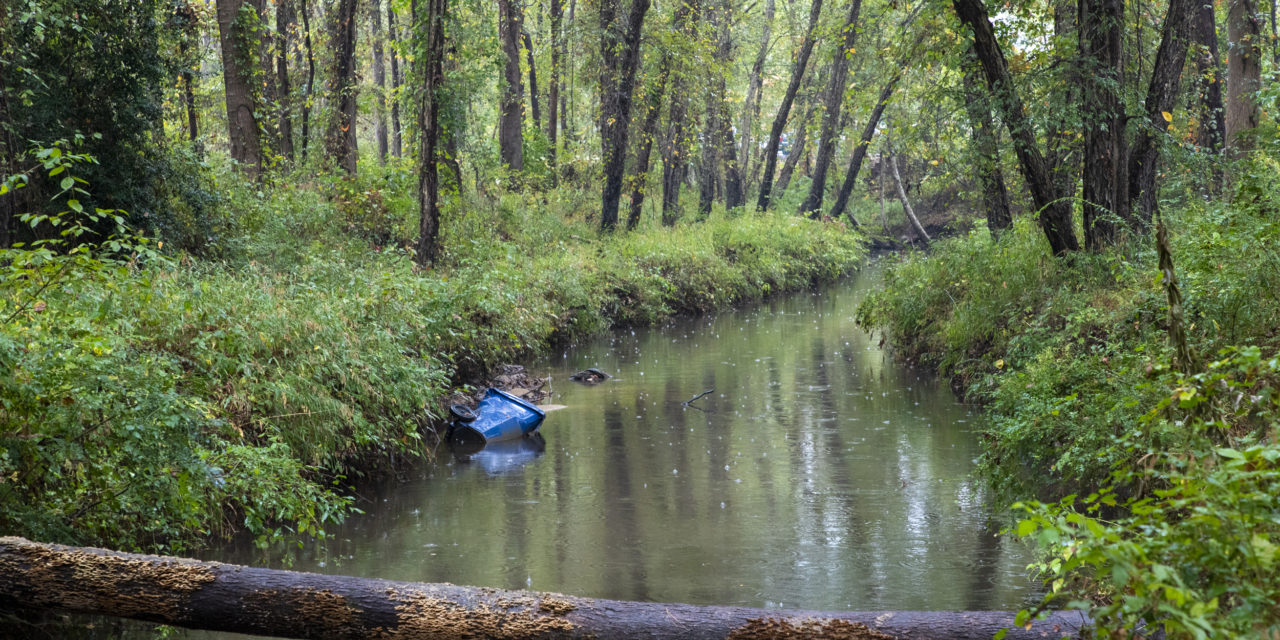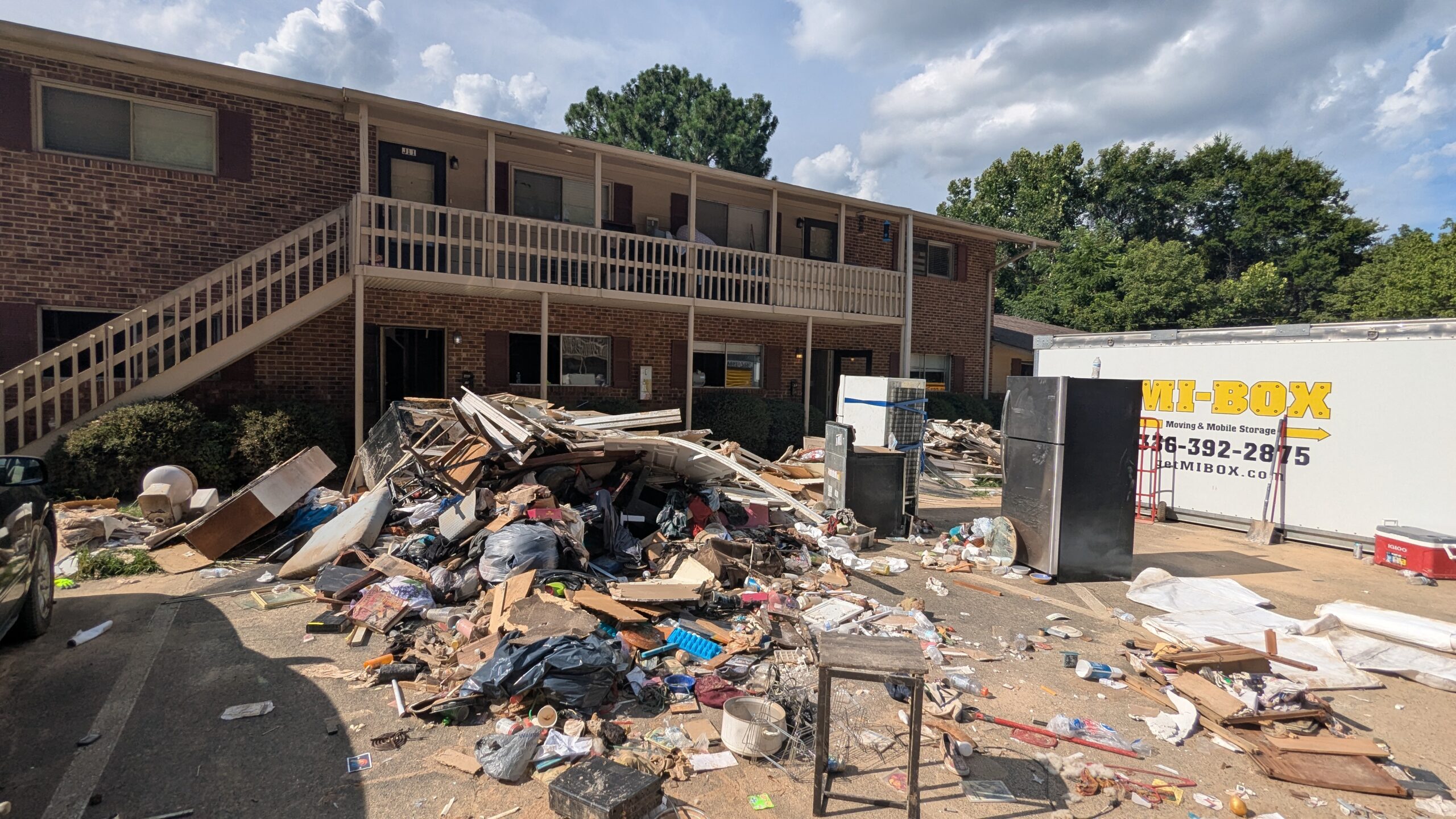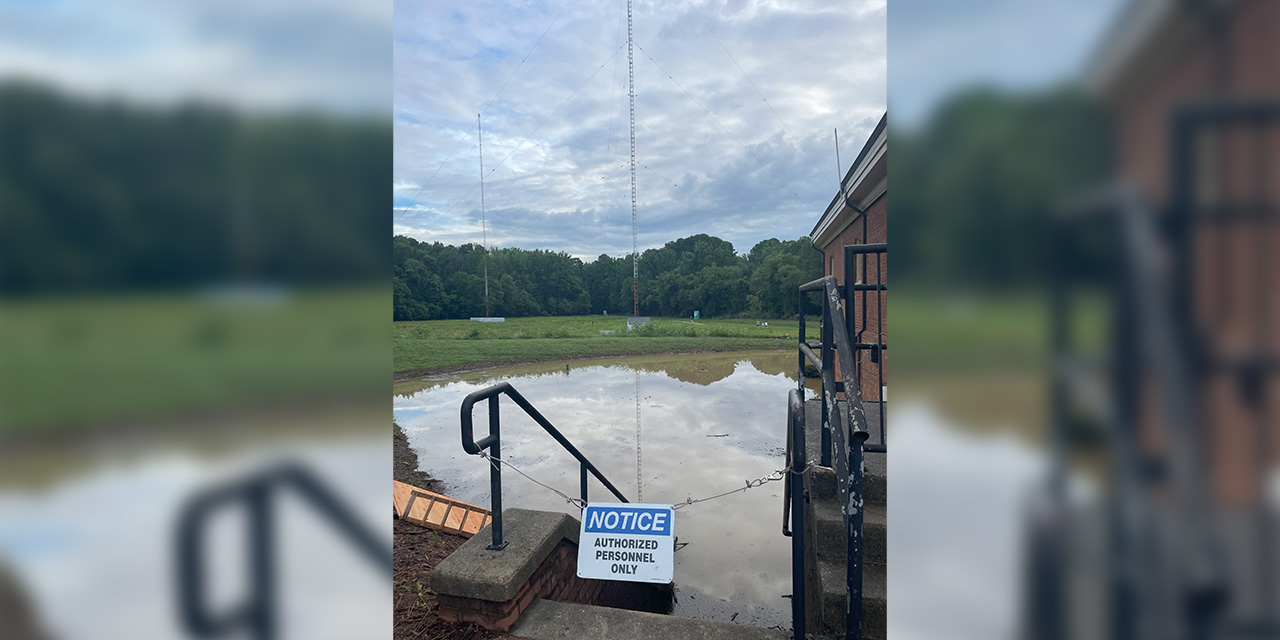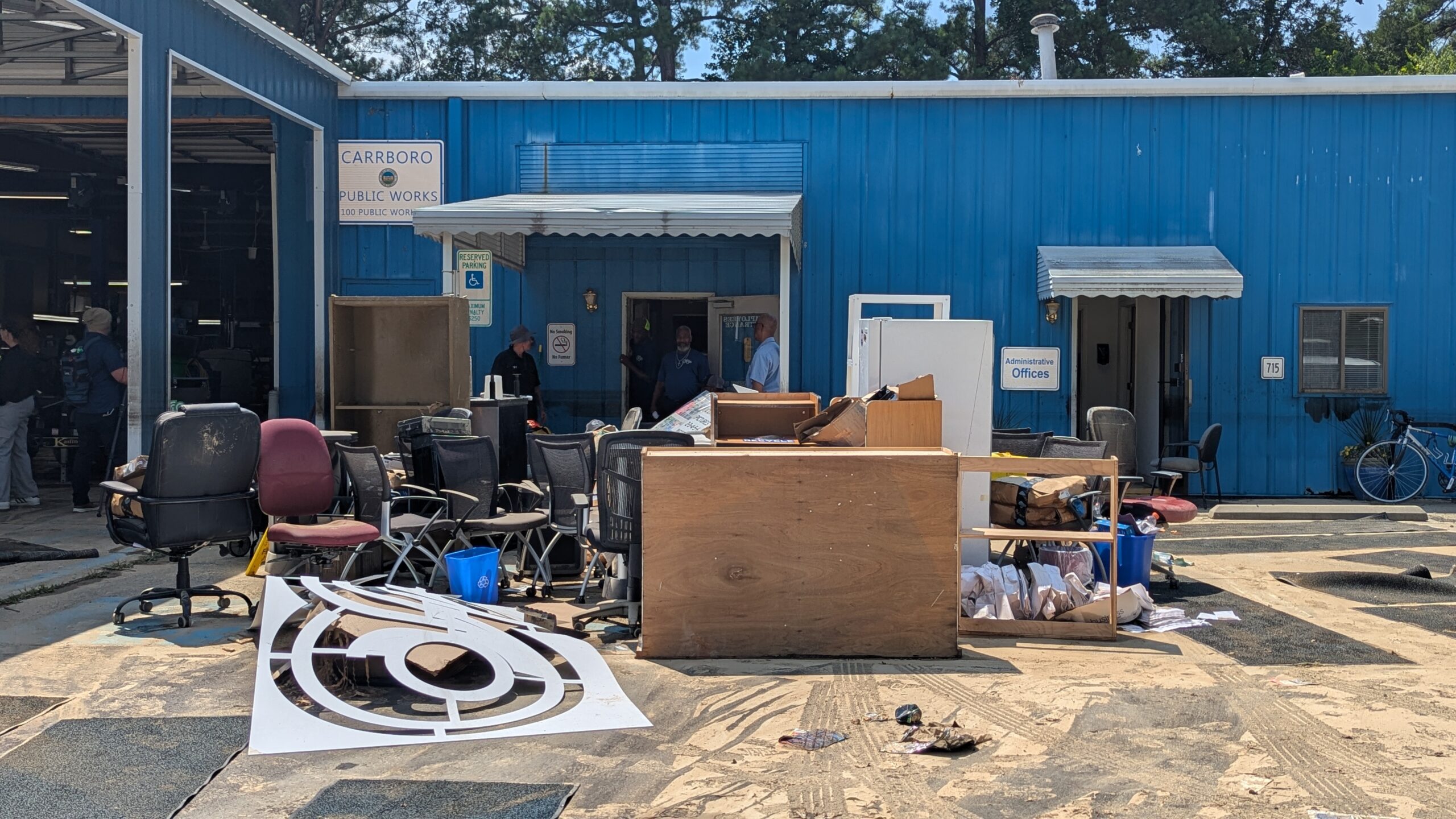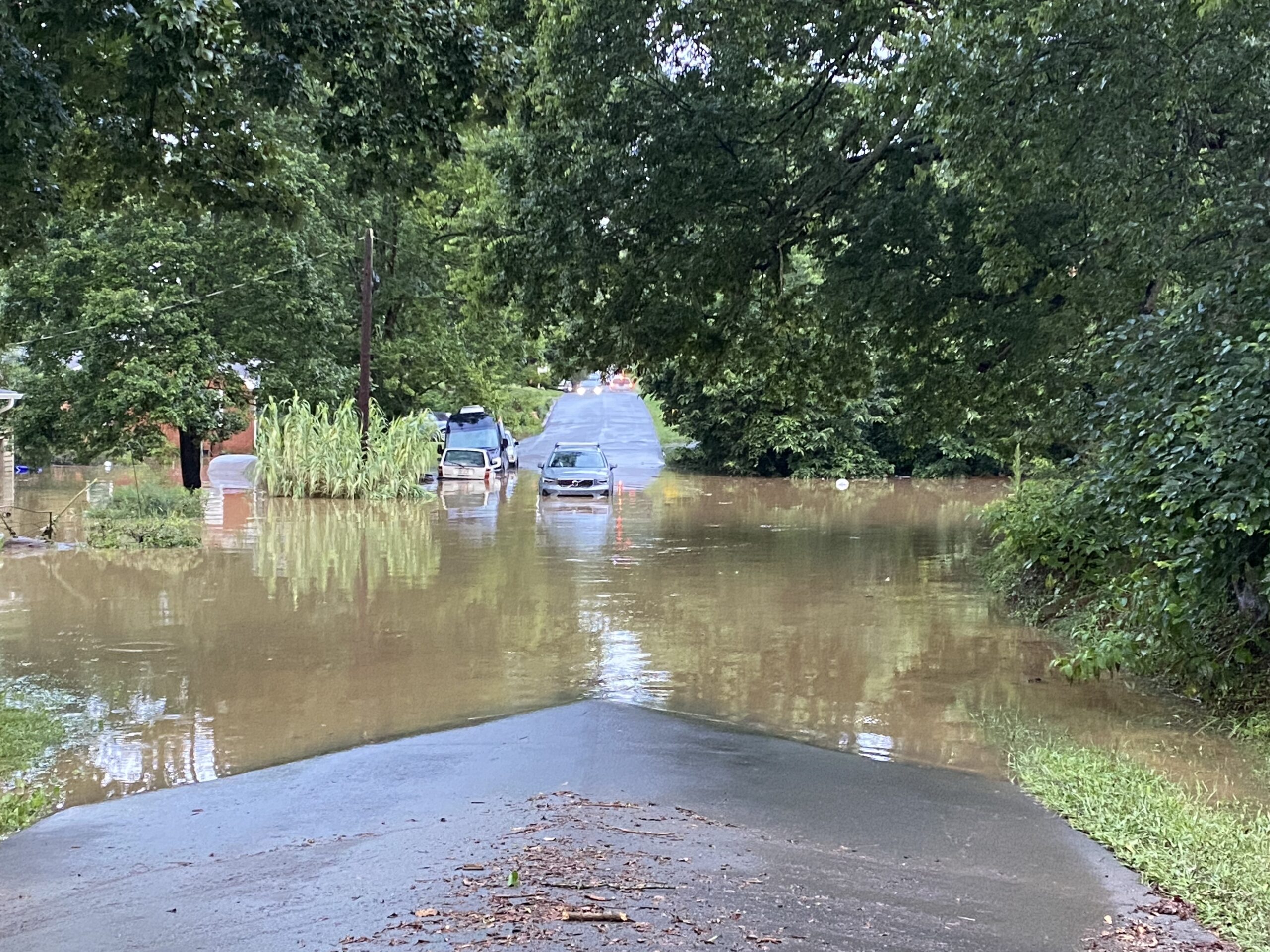The Town of Chapel Hill hosted a community information meeting about the Booker Creek Watershed last week — a project to assess how stormwater is managed for future development. The town put its original stormwater mitigation plan on pause to address public concerns.
In 2017, the engineering firm WK Dickson conducted a study of Lower Booker Creek to come up with methods to mitigate stormwater quantity, flooding issues and protect natural stream corridors.
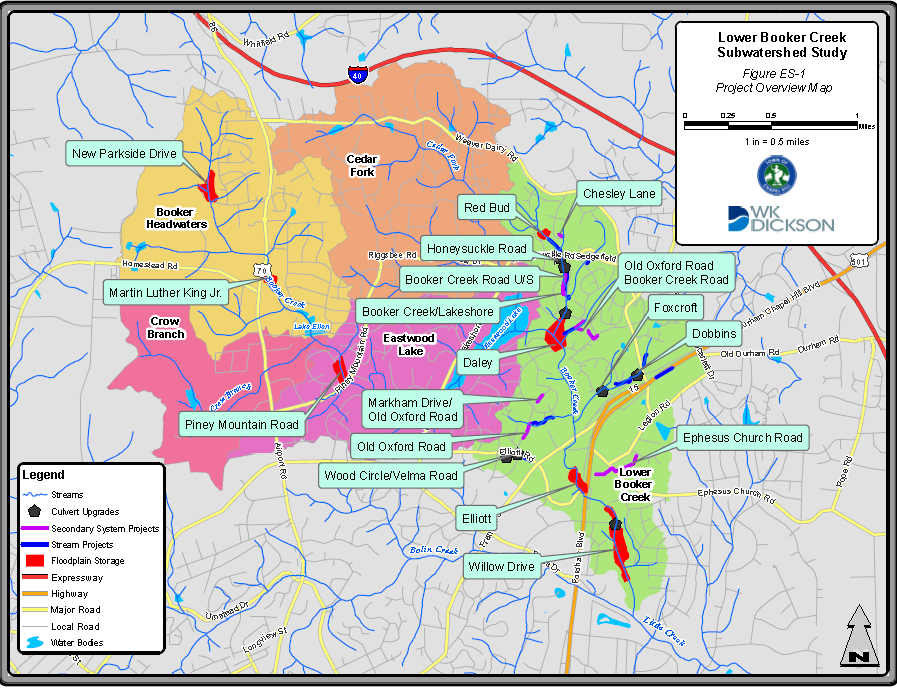
A map of Booker Creek evaluated by WK Dickson in their 2017 study (Photo via WK Dickson)
Findings from the study were presented to the Chapel Hill Town Council in May of this year. The study recommended the construction of six stormwater basins to reduce peak stormwater flows.
These plans, however, were put on pause after a flurry of community members, like Edward Marshall, expressed their frustrations to the town.
“This is a very critical issue facing the town of Chapel Hill,” Marshall said. “Which direction are we going to be going? Gray or green?”
Marshall is the leader of the Booker Creek Neighborhoods Preservation Alliance. The group is requesting to remove the stormwater basins from the town’s plan and create an independent green infrastructure task force.
Marshall said he was stunned by the town’s plan because it called for the removal of 70 percent of the existing trees in the watershed. He said he believes there were multiple flaws with study from WK Dickson.
“What’s missing is an environmental impact analysis,” Marshall said. “At the end of the day all of this deforestation, we believe, would not result in the reduction of stormwater flows. In fact, it would increase it because the trees are already stormwater basins.”
Members of the alliance believe cutting down trees in Booker Creek will lead to an increased heat index because the shade and soil from the trees cools the area. John Morris, another member of the organization, said he believes the town chose an impractical solution.
“These storage projects are the most costly and the most environmentally damaging of all the projects recommended by the study,” Morris said. “It calls for chainsaws and bulldozers to be ripping up our natural stream corridors to build the projects.”
In response to widespread community concern over Chapel Hill’s plan for Booker Creek, town officials decided to change its original outline for the land.
The program manager at WK Dickson, Tom Murray, said community input is helpful in creating the best outcomes for stormwater mitigation.
“We’re going to convene a stormwater work group with a variety of people to start to look at the Booker Creek Subwatershed Study and what some alternative solutions may be,” Murray said. “I think for an area like this, that is so developed, it’s going to take a suite of solutions to address the many issues we are facing with stormwater management.”
The work group will consist of experts, community members and town staff to create better outcomes for addressing flooding and stormwater issues in Chapel Hill.
Chapel Hill Mayor Pam Hemminger said convening a work group will help institute best practices from nearby cities like Durham and ideas from the Booker Creek Neighborhoods Preservation Alliance.
“I see it as a win-win because we are going to pull best information and look at it from an environmental perspective, from a cost-benefit perspective,” Hemminger said. “At the end of the day, the real goal is to reduce that flooding and that’s what we are going to go for.”
Hemminger said the town will withdraw its approval of the original Booker Creek plan at its meeting on Wednesday this week.
The Town Council will hold a public work session on October 20 for staff to provide an update of the sub-watershed studies and discuss next steps for the future of Booker Creek.
Featured photo via Town of Chapel Hill
Chapelboro.com does not charge subscription fees. You can support local journalism and our mission to serve the community. Contribute today – every single dollar matters.

